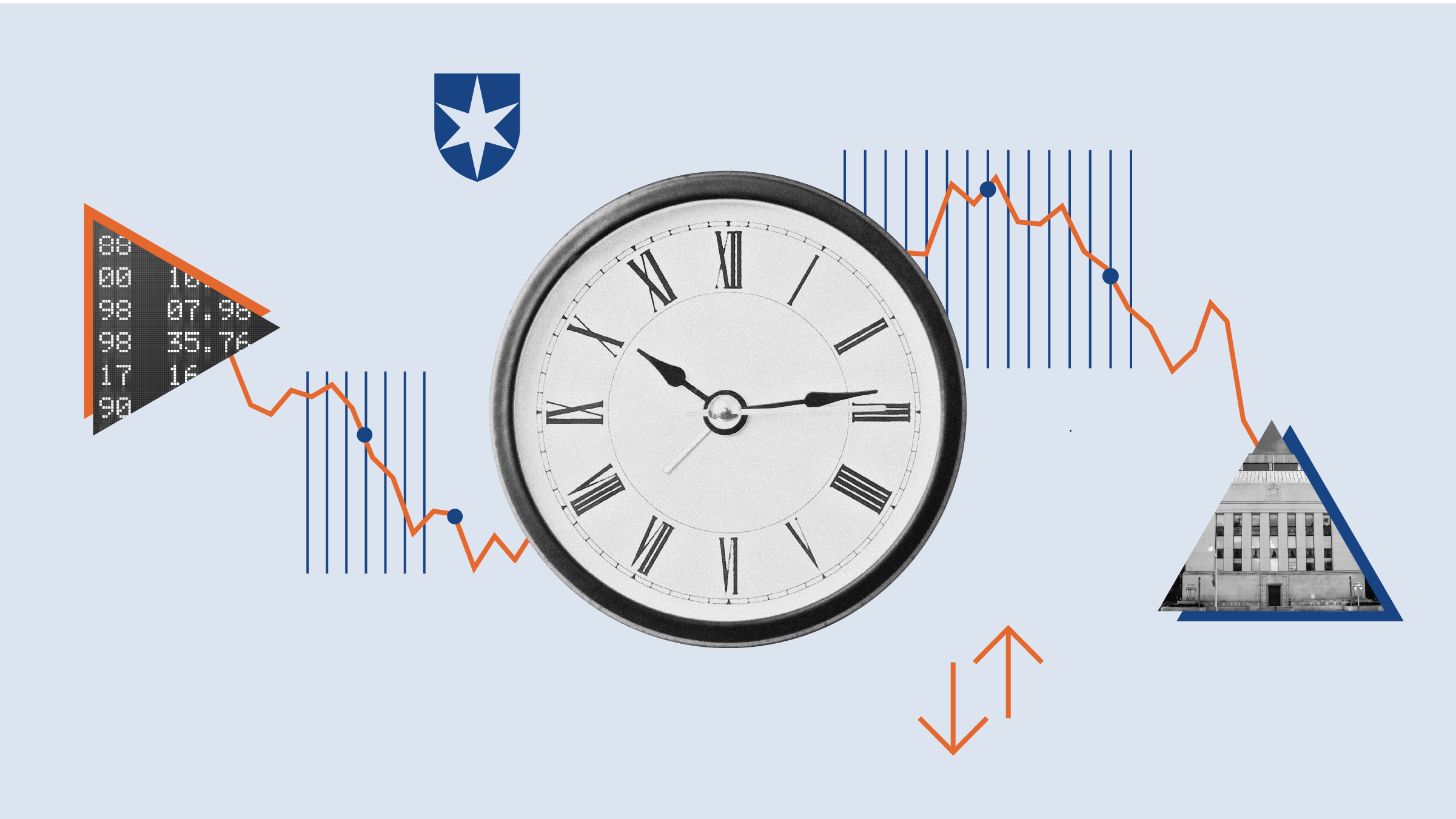Stock markets are getting rocked by a raft of geopolitical events ranging from oil crisis to fears over global economic weakness, from the U.S.-China trade spat to the recent India-Pakistan military confrontation. Skittish investors still smarting from last year’s stock market losses, and unsure about the market’s direction this year, may be tempted to stay in cash.
However, given that both the S&P 500 and the S&P/TSX Composite Index have made double-digit gains for the year to date, as of February 27, being defensively picky may be more prudent than remaining on the side-lines. One of the ways to be defensive is to look for value opportunities arising out of the disconnect between stock prices of some quality names and their fair value estimates. The higher the fair value relative to a stock’s market price, the bigger the margin of safety and upside potential.
The following companies are rare opportunities in Morningstar’s extensive coverage spectrum, which includes more than 1,500 companies and nearly 99% of the firms in the S&P 500 index. Considering their growth potential, these stocks appear significantly undervalued as determined by Morningstar equity analysts. These companies have strong fundamentals, differentiated products and have the ability to weather economic turbulence. These picks, say Morningstar analysts, can see significant upside over the long term.
| Enterprise Products Partners LP | ||
| Ticker: | EPD | |
| Current yield: | 6.21% | |
| Forward P/E: | 14.41 | |
| Price: | US$28.02 | |
| Fair value: | US$35.5 | |
| Value: | 21% Discount | |
| Data as of Feb. 27, 2019 | ||
Enterprise Products Partners (EPD) transports and processes natural gas, natural gas liquids (NGL), crude oil, refined products and petrochemicals.
With operations spanning across the U.S., the midstream infrastructure company “has built out a dominant position in natural gas liquids,” says a Morningstar report, noting that its assets are well positioned to benefit as U.S. natural gas exports increase over time.
The five-star-rated company is vertically integrated with best-in-class assets at nearly every point in the value chain. “While many other midstream operators are playing checkers, Enterprise Products Partners is a chess master,” says Morningstar sector strategist, Stephen Ellis, who appraises the stock to be worth US$35.5.
The wide-moat firm’s sustainable competitive advantage is built on efficient scale. “On each of the major factors we use to evaluate midstream firms--asset quality, location, and contracts quality--Enterprise stands out with differentiated advantages,” says Ellis, who forecasts returns on invested capital to average about 14% over the next five years, well above the company’s 7% cost of capital.
| Stericycle Inc. | ||
| Ticker: | SRCL | |
| Current yield: | - | |
| Forward P/E: | 10.63 | |
| Price: | US$44.95 | |
| Fair value: | US$83 | |
| Value: | 46% Discount | |
| Data as of Feb. 27, 2019 | ||
Stericycle (SRCL) is the largest domestic provider of regulated medical waste management services to more than 1 million customers globally, including large-quantity generators (such as hospitals) and small-quantity generators (medical and dental offices). The company also provides a host of ancillary services, including pharmaceutical waste management, patient-communications solutions, hazardous waste pickup, and secure document destruction (Shred-it).
Stericycle had enjoyed a long history of high-single-digit organic growth and healthy profitability, but more recently large and costly acquisitions have weighed on margins and ROICs, says a Morningstar report. “That said, we don’t believe Stericycle is in a perpetual state of decline and, in our view, the firm isn’t losing its footing against its small regional peers,” says the report.
Scale is of the essence in route-based service businesses as it affords better processing-facility utilization and leverage over a vast cost base compared to smaller peers, says Morningstar equity analyst, Matthew Young, who recently lowered the stock’s fair value slightly from US$86 to US$83, but asserts “the current valuation offers an attractive entry point for patient value investors willing to stomach near-term volatility.”
| British American Tobacco PLC ADR | ||
| Ticker: | BTI | |
| Current yield: | 7.29% | |
| Forward P/E: | 8.95 | |
| Price: | US$37.25 | |
| Fair value: | US$59 | |
| Value: | 37% Discount | |
| Data as of Feb. 27, 2019 | ||
British American (BTI) is the largest listed global tobacco company by net revenue. The company owns well-known cigarette brands such as Dunhill, Kent, Pall Mall, Lucky Strike, and Rothmans. It also sells vapour e-cigarettes (Vype), heated tobacco (Glo), roll-your-own and smokeless tobacco products. BTI holds 31% of Indian tobacco giant ITC Limited.
Although it’s adapting to newer, non-traditional industry trends, the company remains focused on the voluminous traditional tobacco market. “BAT has doubled down on the combustible business with its [2017] acquisition of Reynolds American,” says a Morningstar report, adding that Reynolds is “an incredibly strong asset in a market with plenty of remaining potential for raising prices.”
As consumers become increasingly aware of health issues, British American is simultaneously placing bets on new categories -- vape, heated tobacco, and smokeless tobacco -- which are predicted to win a growing share of smokers, says Morningstar sector director, Philip Gorham.
“We believe heated tobacco is the category most likely to successfully attract smokers,” Gorham says, pointing out that while Philip Morris beat BAT to the heated tobacco market, “we do not regard the first-mover advantage [of PMI] as being sustainable in the long term, and it is possible that BAT will regain share over time.”
| Allergan PLC | ||
| Ticker: | AGN | |
| Current yield: | 2.18% | |
| Forward P/E: | 8.31 | |
| Price: | US$135.94 | |
| Fair value: | US$240 | |
| Value: | 43% Discount | |
| Data as of Feb. 27, 2019 | ||
One of the largest specialty pharmaceutical manufacturers, Allergan (AGN) specializes in aesthetics, ophthalmology, women’s health, gastrointestinal and central nervous system products. In 2016, Allergan sold its generics and distribution segments to Teva.
The five-star-rated company, which grew in dominance through acquisitions, is shedding non-core assets. Further, it’s deleveraging the balance sheet with ample cash to initiate a dividend and pursue pipeline acquisitions.
Allergan’s diverse portfolio of defensible products, broad pipeline, and future acquisitions could sustain healthy earnings growth. “Acquisitions of Warner Chilcott and Forest Labs enhanced the company’s branded drug portfolio with a significant presence in the primary care markets of women’s health, gastrointestinal, urology, and central nervous system therapeutics,” says a Morningstar sector strategist, Michael Waterhouse, noting that the company has “a long runway for growth thanks to defensible products (especially Botox) and a sufficient pipeline.”
The pharmaceutical company has been able to fend off generic threats through patent litigation and new product launches. “Moreover, Allergan’s pipeline of injectable devices, biologic products, and reformulated neuromodulators, which introduce even greater manufacturing complexity that should help reduce the long-term risk of generic competition,” says Waterhouse, who puts’ the stock’s fair value at US$240, and projects low-single-digit growth over the next few years.






















